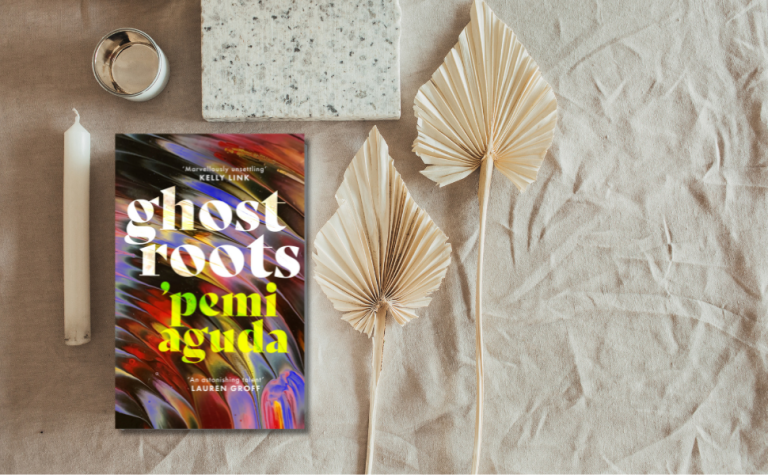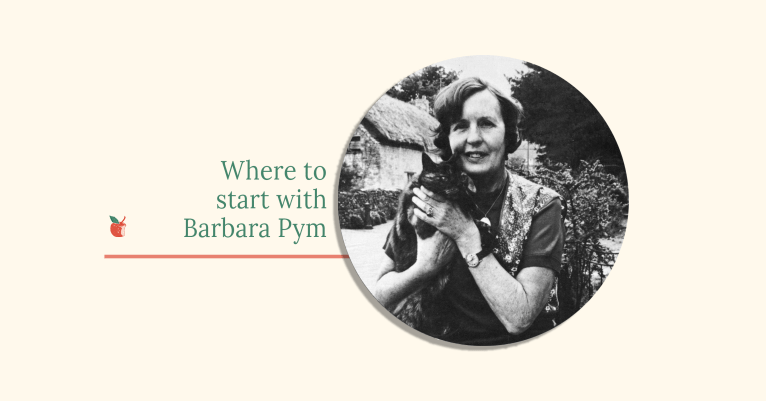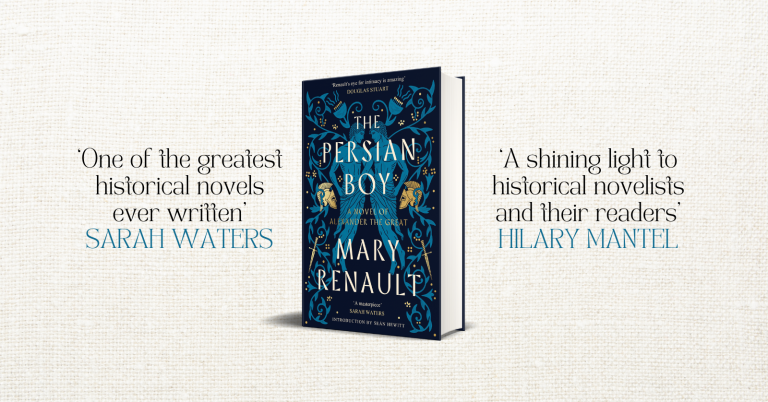Read an extract from The Vulnerables by Sigrid Nunez
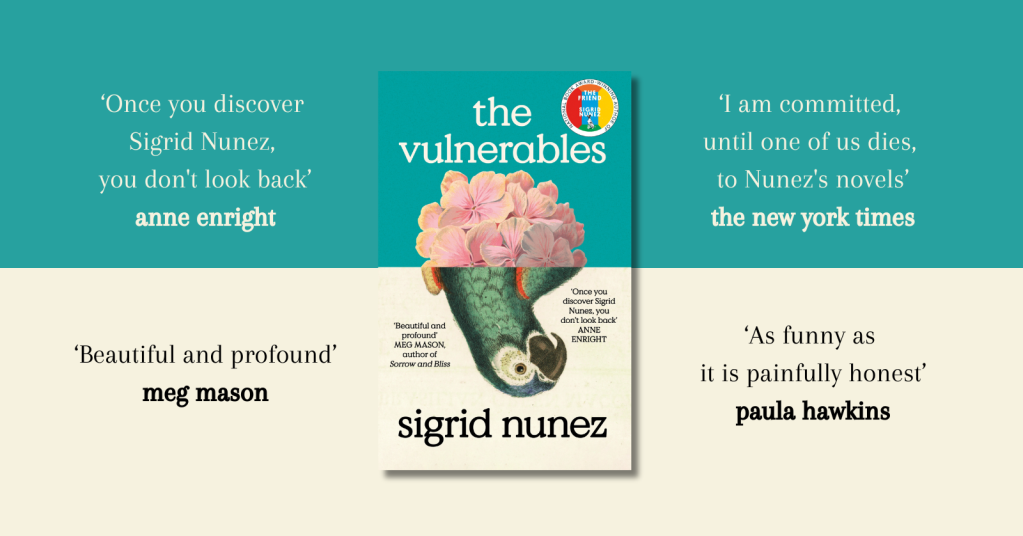
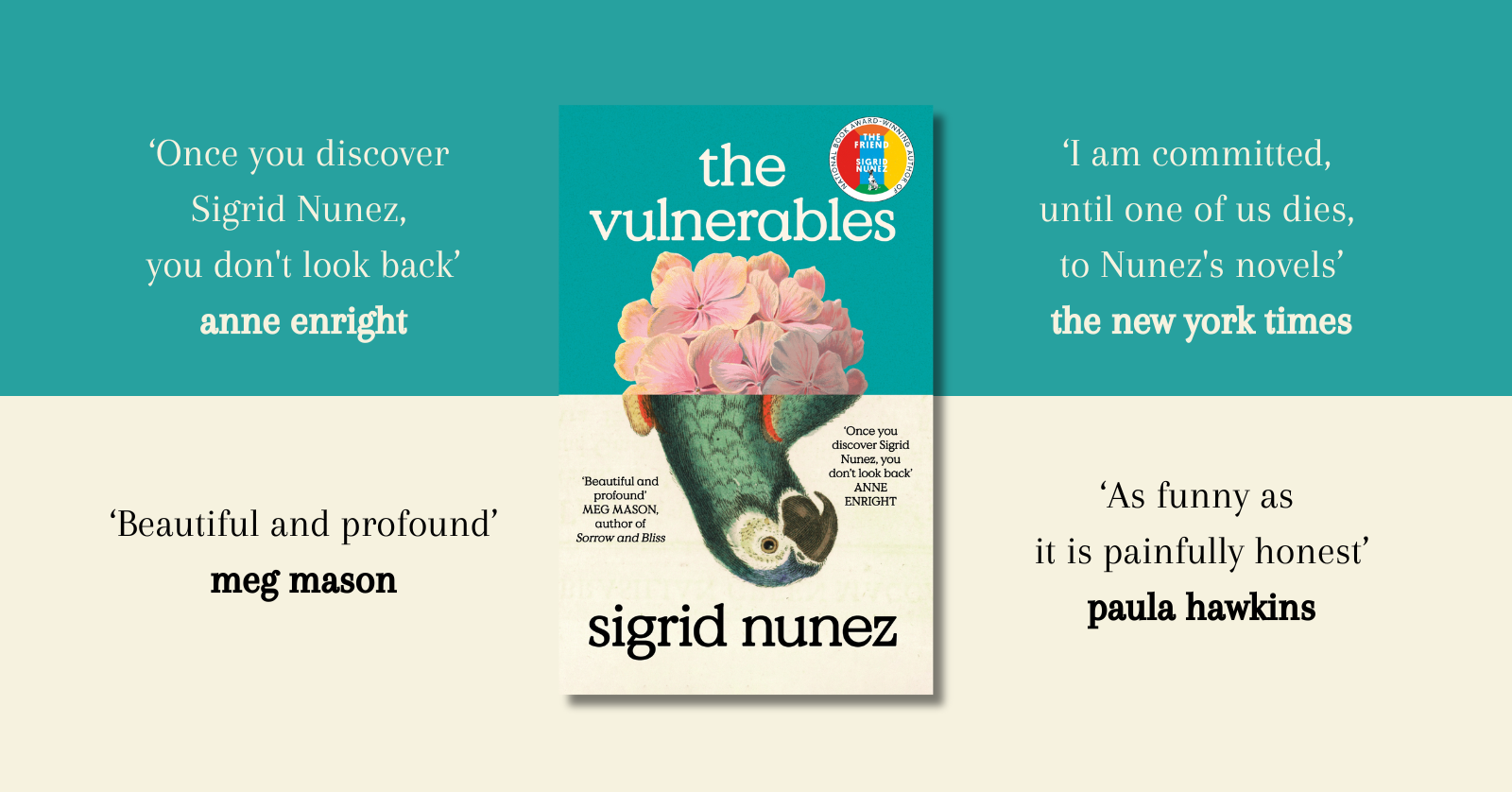
‘Once you discover Sigrid Nunez, you don’t look back’ ANNE ENRIGHT
‘Beautiful and profound’ MEG MASON
‘I am committed, until one of us dies, to Nunez’s novels. They are short, wise, provocative, funny’ THE NEW YORK TIMES
The author of The Friend delivers another tender-hearted novel rich in humour and compassion as a writer, a college dropout and a parrot sustain each other in a Manhattan apartment whilst the Covid pandemic rages outside.
Read on for an extract:
“It was an uncertain spring.”
I had read the book a long time ago, and, except for this sentence, I remembered almost nothing about it. I could not have told you about the people who appeared in the book or what happened to them. I could not have told you (until later, after I’d looked it up) that the book began in the year 1880. Not that it mattered. Only when I was young did I believe that it was important to remember what happened in every novel I read. Now I know the truth: whatmatters is what you experience while reading, the states of feeling that the story evokes, the questions that rise to yourmind, rather than the fictional events described. They should teach you this in school, but they don’t. Always instead the emphasis is on what you remembered. Otherwise, how could you write a critique? How could you pass an exam? How could you ever get a degree in literature?
I like the novelist who confessed that the only thing to have stayed with him after reading Anna Karenina was the detail of a picnic basket holding a jar of honey. What stayed with me all this time after reading The Years was how it opened, with that first sentence, followed by a description of the weather.
Never open a book with the weather is one of the first rules of writing. I have never understood why not.
“Implacable November weather” is the third sentence of Bleak House. After which Dickens famously goes on a lot about fog.
“It was a dark and stormy night.” I have never understood why this phrase has been universally acknowledged to be the worst way for (I forget who: something else to look up) to begin a novel. Scorned for being both unexciting and, at the same time, too melodramatic.
(Edward Bulwer-Lytton, originally. In a book called Paul Clifford, in 1830. Others thereafter, in mockery, most memorably Ray Bradbury, Madeleine L’Engle, and Snoopy.)
Unimaginative was the word Oscar Wilde used to describe people for whom weather is a topic of conversation. Of course, in his day, weather—English weather in particular—was boring. Not the far more erratic, often apocalyptic event people all over the world obsess about today.
Important to point out, however, that it wasn’t nor- mal fog—condensed vapor, a low cloud—that Dickens was talking about, but a miasma caused by London’s appalling industrial pollution.
it was an uncertain spring.
Early each morning I went for a walk. It was my chief pleasure in a dearth of pleasures, observing day by day the arrival of a new season: the magnolias putting out their petals and—so poignantly soon, as it seemed to me every year, but never more so than the spring of 2020—shedding their petals. The cherry blossoms, even lovelier—loveliest, agreed—but likewise short-lived. The daffodils and the narcissus—narcisusses? narcissi?— and the gaudy tulips that seemed almost like wild mouths screaming for attention. “Too excitable” is how Sylvia Plath once saw a vase of “too red” ones. Like Rilke’s frightened flowers “rising up to say: Red.” To Elizabeth Bishop, the spots on the tips of the dogwood petals were like burns from a cigarette butt. Poets.
Can it be accidental that the names for flowers are also always beautiful words? Rose. Violet. Lily. Names so appealing that people choose them for their baby
girls. Jasmine. Camellia. I once knew a bulldog named Petunia. A cat named Mimosa.
So many other beautiful ones I can think of: anemone, lilac, azalea. Of course, there must be an exception.There are always exceptions. But though I’m not so keen about phlox, I can’t come up with a single really ugly flower name, can you?
There are other plants, though, like weeds and herbs, with hideous names, like vetch. We’re thinking of naming the baby Vetch. Meet the twins: Mugwort and Milkvetch. Horehound. Bugbane. Wormwood: the name C. S. Lewis gave the devil apprentice in The Screwtape Letters.
Snapdragon! Not for a baby girl, never, but a good name for a cat.
There were days when I stayed out a long time—up to three or four hours. I made a loop. I went from park to park.That’s where the flowers were. Early on, before the playgrounds were closed, I took comfort in watching the young children, or even just hearing their trilling voices as I sat on a bench nearby. (Not reading, as I would have been doing in ordinary times. I had lost the ability to concentrate. It was only the news that gripped my attention, the one thing I wished I could ignore.) I enjoyed watching the dogs play, too, before the dog runs were closed. Weren’t we all reduced to the state of children now. These were the rules: break them and you’ll be punished, your happy-making privileges taken away. For the good of all: understood. But the dogs—what had they done?
Of course, I still saw plenty of dogs being walked. But it seemed to me there was something different about them. They knew something was up. The somber way they plodded along, brows furrowed, heads low. Now what have they gotten themselves into, those brows seemed to say.
A young friend of mine disapproved of my spending so much time outdoors.
You’re allowed to get a breath of air, she said. But that doesn’t mean wandering about the streets for hours.
But why put it like that, wandering about, as if I were some dotty, driftless old lady.
A quick turn around the block, a trip to the grocery store, get in, get out, no dawdling. Stay home. That’s the rule.
Don’t play dumb, she said. You’re breaking the rules, and you know it.
A vulnerable, she called me. You’re a vulnerable, she said. And you need to act like one.



